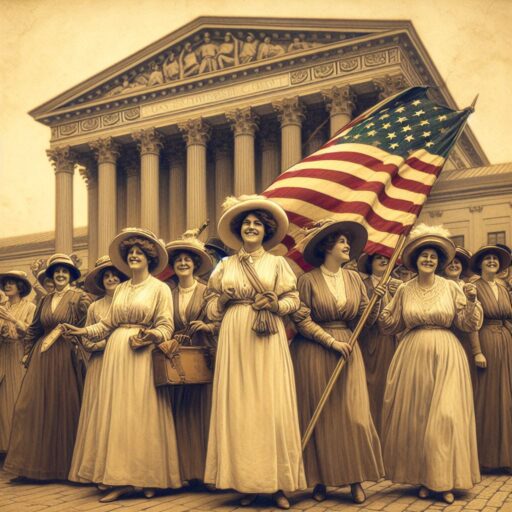In a historic decision on February 27, 1922, the Supreme Court of the United States unanimously upheld the 19th Amendment, securing women’s right to vote. This landmark ruling marked a pivotal moment in our nation’s history, granting women a voice in shaping the democratic fabric of our society.
Fast forward to today, and let us engage in a thought experiment: What if the same vote were to happen now? Would the outcome remain unchanged, or would we witness a different narrative?
The Landscape Today
Our world has transformed significantly since 1922. Women have shattered glass ceilings, marched for equality, and held positions of power across various domains. Yet, challenges persist. Gender disparities persistently echo through boardrooms, legislative chambers, and everyday conversations. The fight for gender equality is far from over.
The Hypothetical Vote
Imagine the Supreme Court revisiting the 19th Amendment in 2024. Would the justices reaffirm its constitutionality? Let’s explore three possible scenarios:
- Unwavering Support: In this optimistic scenario, the Court would resoundingly uphold the amendment. The justices would recognize the progress made since 1922, celebrating the contributions of women in every sphere. They would emphasize that voting rights are fundamental, regardless of gender.
- Controversial Debate: Alternatively, we might witness a heated debate. Some justices could argue that the 19th Amendment, while groundbreaking, does not address intersectionality adequately. They might question whether it truly empowers all women, especially those marginalized by race, ethnicity, or socioeconomic status.
- Backlash and Rollbacks: Sadly, a third scenario looms. A faction of the Court might challenge the amendment’s relevance. They could argue that women’s voices are adequately represented, dismissing the need for constitutional protection. Such a stance would ignite fierce public discourse.
Public Sentiment
Public opinion would sway the Court’s decision. Social media, op-eds, and town halls would buzz with fervent discussions. Advocacy groups would rally, invoking the spirit of suffragettes and demanding justice. The hashtag #EqualVoice2024 would trend, uniting citizens across party lines.
The Verdict
Ultimately, the Court’s ruling would reflect our collective conscience. Would we honor the legacy of Susan B. Anthony, Elizabeth Cady Stanton, and countless others who fought for suffrage? Or would we falter, allowing complacency to erode progress?
In Conclusion
As we commemorate the 19th Amendment’s centennial, let us remember that progress is not linear. It requires vigilance, empathy, and unwavering commitment. Whether the hypothetical vote would yield a different outcome remains uncertain. But one thing is clear: Our democracy thrives when every voice is heard.
—
Disclaimer: The content presented in this article is intended solely for entertainment and satirical purposes and do not necessarily represent the opinions or beliefs of any news organization. Additionally, please be aware that this article contains AI-generated content, which may include inaccuracies or false information. Readers are encouraged to verify facts independently.
